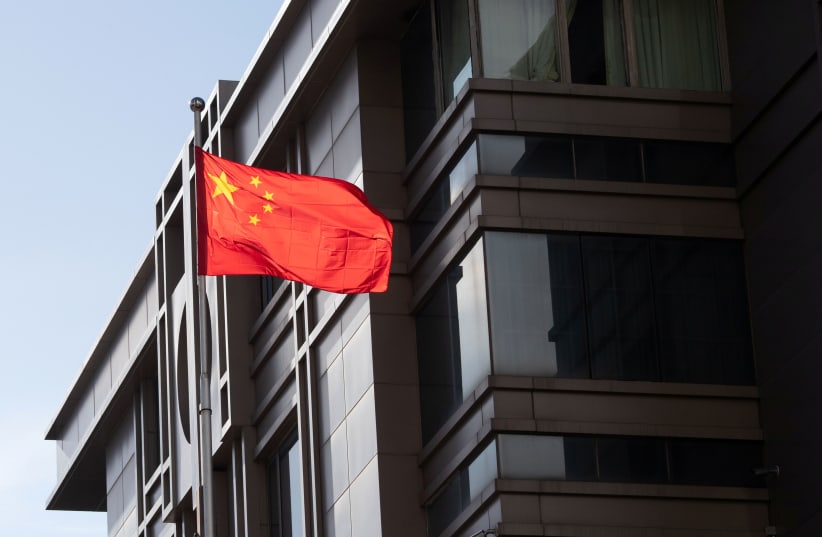The United States said on Wednesday it had given China 72 hours to close the consulate "to protect American intellectual property and Americans' private information," prompting Chinese threats of retaliation.
US officials told NBC News on Thursday that the decision to close the consulate was made after years of FBI intelligence-gathering found that the site was used to steal medical research and infiltrate the oil and natural gas industries.
The consulate was a high-tech communications hub to coordinate spying operations, according to current and former US law enforcement officials.
Hours before the closure of the consulate was announced, neighbors noticed and recorded small fires in bins in the internal courtyard of the consulate, according to NBC News.
The FBI in Houston was investigating Chinese nationals' efforts to send advanced research from Houston's University of Texas MD Anderson Cancer Center back to China.
The decision marked a dramatic escalation of tension between the world's two biggest economies amid fresh accusations of Chinese espionage in the United States and calls by US Secretary of State Mike Pompeo for a new global coalition against Beijing.
China's embassy to the United States described the order as "political provocation" and called on Washington to "immediately revoke" the decision.
Foreign ministry spokeswoman Hua Chunying wrote on Twitter that China would "surely react with firm countermeasures."
The official English-language China Daily newspaper described the closure as "a new gambit in the US administration's bid to paint China as a malevolent actor on the world stage, and thus make it an outlaw to the international community."
"The move shows that lagging behind his presidential election opponent in the polls ... the US leader is going all out in his attempts to portray China as an agent of evil," it said.
Polls show President Donald Trump trailing his challenger, former Vice President Joe Biden, ahead of the Nov. 3 election as the coronavirus crisis worsens, exacting a deep toll on the US economy.
RETALIATION THREAT
China has not said how it may retaliate.
The South China Morning Post reported that China may close the US consulate in the southwestern city of Chengdu, while a source told Reuters on Wednesday that China was considering shutting the US consulate in Wuhan, where the United States withdrew staff during the coronavirus outbreak.
Hu Xijin, editor the Global Times, a tabloid published by the ruling Communist Party's official People's Daily, said in a column that shutting the Wuhan consulate would not be sufficiently disruptive.
Hu said the United States had a large consulate in Hong Kong and it was "too obvious that the consulate is an intelligence center."
"Even if China doesn't close it, it could instead cut its staff to one or two hundred. This will make Washington suffer much pain," he wrote.
The other US consulates in China are in Guangzhou, Shanghai and Shenyang.
'GROUNDLESS FABRICATIONS'
The Chinese embassy in Washington, in a statement released on Thursday, accused the United States of "groundless fabrications" about the actions of China's diplomatic missions and urged it to "immediately revoke this erroneous decision."
"It's time to step on the brakes and return to the right direction!" the embassy posted separately on its Twitter account.
Separately, according to US court filings, the Federal Bureau of Investigation is alleging that a Chinese researcher accused of visa fraud and concealing ties to the military is now holed up in China's consulate in San Francisco.
Other Chinese researchers at US universities have also been arrested for visa fraud, the filings showed.
China's foreign ministry did not immediately respond to a request for comment.Jerusalem Post Staff contributed to this report.
